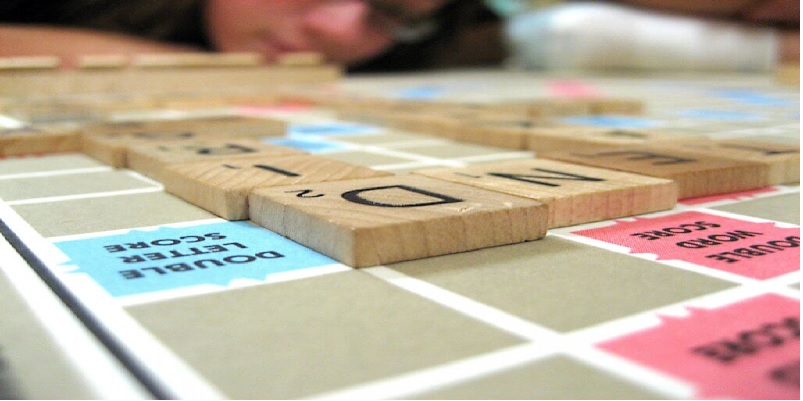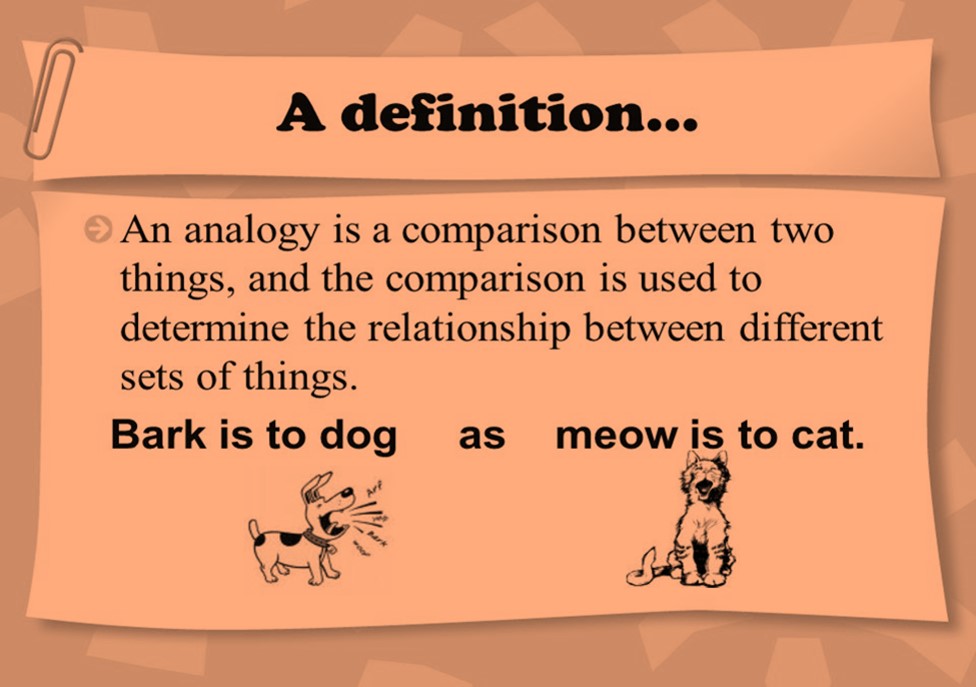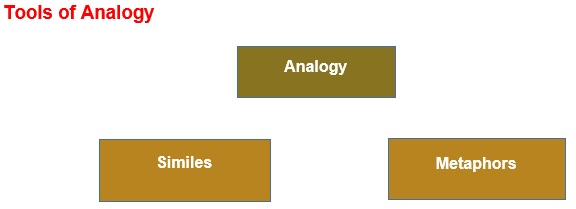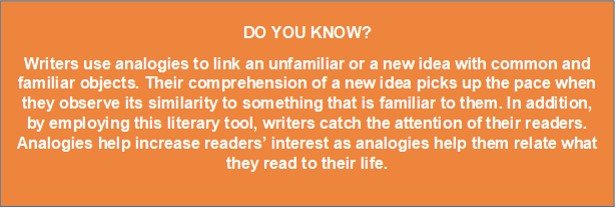
Analogies
A comparison in which a thing is compared to another thing that is quite different from it. It aims at explaining that thing by comparing it to something that is familiar is an analogy. Metaphors and similes are tools used to draw an analogy.
In other words, an analogy can be described as a comparison of two things to show their similarities. Sometimes the things being compared are quite similar, but other times they could be very different. Nevertheless, an analogy explains one thing in terms of another to highlight the ways in which they are alike.

A lot of analogies are so useful that they are part of everyday speech. These are often known as idioms or figures of speech. The analogy given below makes a comparison between two things:

Analogies, metaphors and similes are closely related, but they are not the same. Because making comparisons is very useful in both speaking and writing. They are all key literary devices, but an analogy is more of a logical argument than a simple figure of speech.
Similes
A simile compares two things using the words “like" or “as" to create a new meaning. These comparisons are direct and typically easy to understand. For example:
Metaphors
Metaphors are another figure of speech used to make comparisons. These comparisons describe one thing in terms of another, without using “like" or “as". For example, describing a woman in terms of a flower can highlight her beauty: “Her petal-soft smile blossomed in the morning sun."
In this example, the woman’s lips are described as petals of the flower that blossom. These are words that are generally used for flowers instead of people. Therefore, the comparison is drawn between the woman and a flower by describing her with the language of flowers. Here are few examples:

Spellings
English words are not always spelled as they are pronounced. Spelling in English follows some basic rules and the majority of English words follow these rules. A spelling is the correct order of the letters in a word. It is the ability to spell words in the correct way. It is also an attempt to spell a word in the correct way.
The process of writing or naming the letters of a word is known as spelling. Spelling matters. If you want to create a good impression in your writing. It’s important to get your spelling right. Spelling is the combination of alphabetic letters to form a written word. It is a linguistic process of correct writing with the necessary letters present in a comprehensible usually standardized order.
|
dis + obey → disobey |
mis + spell → misspell |
|
dis + satisfied → dissatisfied |
over + hear → overhear |
|
in + humane → inhumane |
super + human → superhuman |
|
in + sane → insane |
un + natural → unnatural |
|
inter + national → international |
un + sure → unsure |
|
mis + rule → misrule |
under + pass → underpass |
There are rules for the plurals of regular nouns and the -s forms of regular verbs.
The general rule is add -s:
|
noun plurals |
verb -s forms |
|
bus→ buses |
cross → crosses |
|
church → churches |
fetch → fetches |
|
kiss → kisses |
guess → guesses |
Spelling is a vast topic. As it is very well known that English is a very funny language.
Every spelling is different and has its own rule. A person can never stop learning spellings.
The more a person learns about spellings the more he wants to learn. So ask this question
to yourself

Recap
A comparison in which a thing is compared to another thing that is quite different from it. It aims at explaining that thing by comparing it to something that is familiar is analogy
bus --- buses
church --- churches
kiss --- kisses
Q.1 |
I spend my vacations in __________ hills. |
| a) | a |
| b) | the |
| c) | an |
| d) | not required |
Q.2 |
She has not met him in __________ five years. |
| a) | a |
| b) | an |
| c) | the |
| d) | not required |
Q.3 |
Men should know how to treat __________lady. |
| a) | a |
| b) | an |
| c) | the |
| d) | not required |
Q.4 |
__________ cell phones do not any harm. |
| a) | a |
| b) | an |
| c) | the |
| d) | not required |
Q.5 |
__________ cake we ate was really expensive. |
| a) | a |
| b) | an |
| c) | the |
| d) | not required |
Q.6 |
I still remember ______girl I saw yesterday at ______ store. |
| a) | the, the |
| b) | a, the |
| c) | the, a |
| d) | not required, the |
Q.7 |
My __________ teacher’s name is Vanessa. |
| a) | a |
| b) | an |
| c) | the |
| d) | not required |
Q.8 |
_____place we went to had ____ideal climate. |
| a) | the, the |
| b) | the, a |
| c) | the, an |
| d) | not required, an |
Q.9 |
Jessica always believes that_____patience is ______virtue. |
| a) | not required, a |
| b) | the, a |
| c) | not required, not required |
| d) | not required, the |
Q.10 |
We stayed at ___hotel which was ____same hotel where Sanya stayed last month. |
| a) | a, a |
| b) | an, a |
| c) | a, the |
| d) | not required, the |
Your Score: 0/10
Yearlong program for Olympiads preparation & to build necessary skills for future.
Explore More
Time to mark your calendar with the upcoming Olympiads exam schedule.
Explore More
Take your Olympiad preparation to next-level by taking LIVE Classes.
Explore More
Assess your performance by taking topic-wise and full length mock tests.
Explore More
Online tuitions for international compeitions like SASMO, SEAMO, etc for Grades 1-11.
Explore More